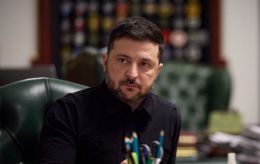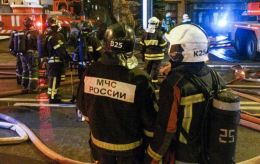ISW assesses consequences of North Korea's participation in Russia's war against Ukraine
 Experts analyzed the involvement of North Korean troops in Russia's war against Ukraine (Illustrative photo: Getty Images)
Experts analyzed the involvement of North Korean troops in Russia's war against Ukraine (Illustrative photo: Getty Images)
The direct involvement of North Korea in Russia's war against Ukraine on the side of Moscow will have consequences that extend far beyond the battlefield. Specifically, this could have a long-term impact on the stability of the Korean Peninsula and the Asia-Pacific region, according to analysts from the American Institute for the Study of War.
In their article, experts note that the Russian military-political leadership is likely to enlist North Korean troops to support its current offensive efforts in the war against Ukraine.
The Kremlin also aims to compensate for the needs of the Russian Armed Forces by incorporating North Korean military personnel.
"The impacts of the deployment of North Korean troops into the Ukrainian theater of operations extend far beyond the battlefield in Ukraine, however," the analysts emphasize.
According to ISW, Pyongyang hopes that the soldiers from North Korea will gain combat experience in a modern warfare environment, which North Korea can expect to utilize in future conflicts in which it may be involved.
"The alignment between North Korea and Russia poses the distinct possibility of threatening the long-term stability of the Korean Peninsula and the broader Asia-Pacific region," the report states.
ISW mentions that North Korean soldiers have engaged in combat in the Kursk region alongside Russian forces. However, the report notes that Pyongyang currently categorically denies all evidence regarding the deployment of its troops to the war.
At the same time, the Kremlin has repeatedly emphasized the supposed legitimacy of cooperation between Russia and North Korea, likely to establish relations with South Korea and prevent Seoul from directly sending military aid to Ukraine.
"North Korea's more explicit denial may reflect a desire to avoid additional or increased international sanctions against Pyongyang," the experts suggest.
Key takeaways
-
The war in Ukraine will change the nature of all future wars, and Pyongyang has identified this fact as a vital opportunity to train its forces. The North Korean army has not participated in large-scale conventional combat since 1953 and realizes that its doctrine is unprepared for modern warfare, especially against an experienced adversary like South Korea.
-
North Korea likely hopes that its troops will have the opportunity to refine their offensive doctrine, test their weapon systems against a Western opponent, gain experience in command, and learn to operate drones and electronic warfare (EW) systems on the modern battlefield. Pyongyang presumably believes that any skills acquired by its forces during the war in Ukraine will provide it with an offensive advantage in future conflicts, particularly on the Korean Peninsula.
-
The actual ability of North Korean forces to learn, disseminate, and institutionalize lessons from the battlefield entirely depends on how Russian command employs North Korean manpower. If Russia uses North Korean personnel as cannon fodder, the losses that North Korean troops are likely to incur would undermine any lessons from the battlefield that Pyongyang hopes to acquire.
-
Moreover, North Korea may be leveraging its increasing cooperation with Russia to reduce its dependence on the People's Republic of China (PRC), thereby diminishing Beijing's leverage over the North Korean regime. A decrease in China's influence over North Korea is likely to lead to reduced stability on the Korean Peninsula and threaten the broader Asia-Pacific region, as China uses its influence to restrain North Korean aggression.
-
The recent partnership agreement between North Korea and the strengthening of relations with Russia could assist Pyongyang in advancing its nuclear weapons program, even if Russian assistance does not take the form of direct technical support.
-
Pyongyang may be attempting to secure Russia's commitments to defense in the event of conflict on the Korean Peninsula as part of a greater compensation for sending such a large contingent of North Korean troops to a foreign war. The mutual defense agreement between Russia and North Korea, established in 2024, may enable Russia to avoid deploying troops in a potential inter-Korean conflict.
-
This defense agreement increases the credibility and effectiveness of threats from Pyongyang, particularly toward South Korea.
Intelligence assessments on North Korean soldiers' participation in Russia's war against Ukraine
According to the Ministry of Defense of Ukraine, around 12,000 North Korean soldiers have already been deployed to Russia, with some spotted in the Kursk region.
Earlier, British intelligence reported that North Korean soldiers are likely to face challenges in combat against the Armed Forces of Ukraine, including not only the language barrier.
Additionally, as noted by Colonel Ants Kiviselg, head of the Estonian Defense Forces' Intelligence Center, the involvement of North Korean troops in the war against Ukraine is unlikely to bring significant changes to the frontline. He stated that North Korean soldiers are expected to suffer heavy losses.

